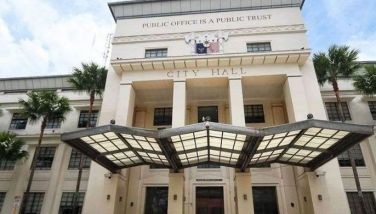Public transport drivers assured they would be part of city BRT
CEBU, Philippines - The Land Transportation Franchising and Regulatory Board yesterday promised there is no dislocation for public utility jeepney drivers and operators once the Cebu-Bus Rapid Transit system would be operational in 2017.
LTFRB-7 Director Ahmed Cuizon made the assurance following the approval of the project by the National Economic Development Authority which aimed at ending growing traffic problem in Cebu City.
President Benigno Aquino III heads the NEDA board.
Cuizon welcomed the development, saying the BRT system is more convenient, reliable and fast.
“We don’t want to cause massive dislocation of drivers and operators. We are closely coordinating with Cebu City. PUJs should be made part and parcel of the overall BRT system,†said Cuizon during the 888 News Forum at Marco Polo Plaza yesterday.
Among the options the LTFRB eyes is to reroute PUJs.
“Dili totally mawagtangan og trabaho, himoon nga tigkuha sa pasahero sa (PUJs could be made to pick up and bring passengers to the) BRT system,†Cuizon said.
Should there be dislocations, Cuizon said drivers or any members of their family would be prioritized in the employment of BRT personnel, like ticket tellers, vendors at concession stalls, cleaners at the 14 stations or terminals, and other related jobs.
Cuizon said PUJs could also be converted into delivery services for hardware, malls, furniture and appliance centers and the LTFRB will issue franchise.
“We will all co-exist together in an economically feasible manner and share the blessing of the BRT in the City of Cebu,†he said.
Of this year’s P62.3-billion budget for infrastructure, transportation, water supply and health care projects, the national government set aside P10.6 billion for the BRT project in Cebu.
The amount will be financed through loans from the Agence Francaise de Development and the International Bank for Reconstruction and Development.
The BRT, a bus system where segregated lanes are made exclusive for the buses, is scheduled to begin operation in 2017. It is seen to help ease traffic congestion, provide fast, comfortable and cost-effective mobility, and ease the transportation problem in Cebu City.
The BRT is estimated to cover 16 kilometers, with the first phase traversing Bulacao in the south to the Cebu Business District, while the second phase will connect Ayala Center Cebu to the Talamban area.
It will have 33 stations served by 176 buses and is estimated to cater to around 330,000 passengers each day. With the presence of the BRT, PUJs would have to go and play the role of "feeders" by bringing passengers to the stations without plying the route of the BRT buses.
Funding for the P10.6-billion BRT would be sourced from the Agence Francaise de Development and the World Bank's Clean Technology Fund.
Construction was originally targeted to start this October, with the BRT projected to be operational by next year already.
The detailed engineering design of the project and procurement for construction services, however, is estimated to last eight months while actual project implementation would take at least two years to finish.
The DOTC is also expected to award the detailed engineering design contract within the year. —(FREEMAN)
- Latest




















